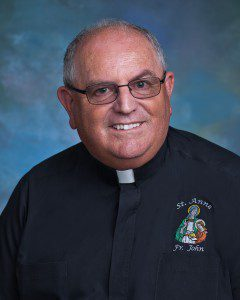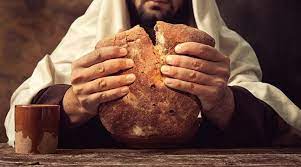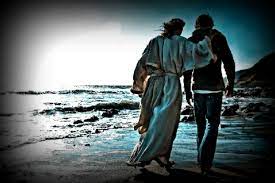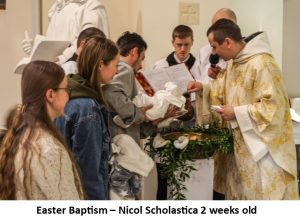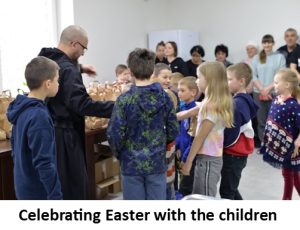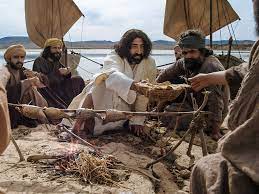 Each day since Easter we’ve heard post-Resurrection stories of personal encounters. The resurrected Christ has visited the disciples and his mother Mary in the Upper Room to breathe peace upon them. We’ve heard the story of how Jesus slips in and out of the company of the two disciples on the road to Emmaus. In John’s narrative Peter’s head is whirling at all that was going on. It appears his message to the others is: “This is too much for me; I’m going to clear my head. I’ll be back later. I’m going fishing!” A few of the others jumped aboard. At daybreak a very human Jesus appears to these disciples who’ve spent a night of non-productive fishing. We know that Jesus must have known this but still he calls to them: “Children, have you caught anything to eat?” Then he suggests to them that they toss the nets on the other side of the boat. Lo and behold, the nets encircle 153 large fish!” No one dares ask him: “Who are you?” To their astonishment, Jesus invites: “Come, have breakfast.”
Each day since Easter we’ve heard post-Resurrection stories of personal encounters. The resurrected Christ has visited the disciples and his mother Mary in the Upper Room to breathe peace upon them. We’ve heard the story of how Jesus slips in and out of the company of the two disciples on the road to Emmaus. In John’s narrative Peter’s head is whirling at all that was going on. It appears his message to the others is: “This is too much for me; I’m going to clear my head. I’ll be back later. I’m going fishing!” A few of the others jumped aboard. At daybreak a very human Jesus appears to these disciples who’ve spent a night of non-productive fishing. We know that Jesus must have known this but still he calls to them: “Children, have you caught anything to eat?” Then he suggests to them that they toss the nets on the other side of the boat. Lo and behold, the nets encircle 153 large fish!” No one dares ask him: “Who are you?” To their astonishment, Jesus invites: “Come, have breakfast.”
Last Sunday the church made sure that we heard the message that Jesus came a second time to the group in the Upper Room. Again, He came right through “locked doors.” He greeted the fearful group: “Peace!” And He turned to address Thomas to quiet his fear that the one the disciples claimed they had seen a week ago might be an imposter. Nothing could keep Jesus away from those who had been his companions for three years.
At that 2nd visit in the Upper Room Jesus praises those who do not seek proof. On the other hand, neither does He condemn those who seek a sign. He meets us where we are on our faith journey. He does not condemn Thomas for wanting to see proof in the nail marks. Instead, he offers living proof to help his unbelief. “See my hands; put your finger here.” And then He nurtures maturity in faith when he says: “Blessed are they who have not seen but have believed.”
In Monday’s gospel there is an exchange with Nicodemus about the wind. From whence does it come, and where does it go? Jesus gently tries to explain, “If I tell you of earthly things and you do not believe, how will you believe if I tell you about heavenly things?” If only if we understood that seeing may not be believing but believing can bring sight.
The lessons remembered by John continue. “God does not ration the gifts of the Spirit; the Father gives everything to the Son.” As the evening grows long, the disciples go down to the sea. It grows dark as they rest and row and drift in the boat. When they are several miles from shore, one by one the Apostles perk up and point to a silhouette of a man who appears to be walking on the water toward them A calming voice is heard: “It is I. Do not be afraid.” Those who are familiar with the voice of God will immediately recognize when Jesus speaks.
Today we hear a curious detail. John relates that before Peter jumps from the boat into the sea, he grabs his clothing “for he was lightly clad.” He puts on more clothes to jump into the water? Is that typical of what we tend to do? If you think about it, it probably is. We don’t want to leave anything behind even when it only adds weight to our journey. What does Jesus tell us to do? Not, grab all your belongings, we’re going on a journey of a lifetime. Rather he says: Feed my sheep; feed my lambs. Follow me!
What is your excess baggage? What needs to be left behind? We have to clear out old expectations if we are to have room to welcome new experiences.
~Reflection by Sister Roberta Bailey, OSB

